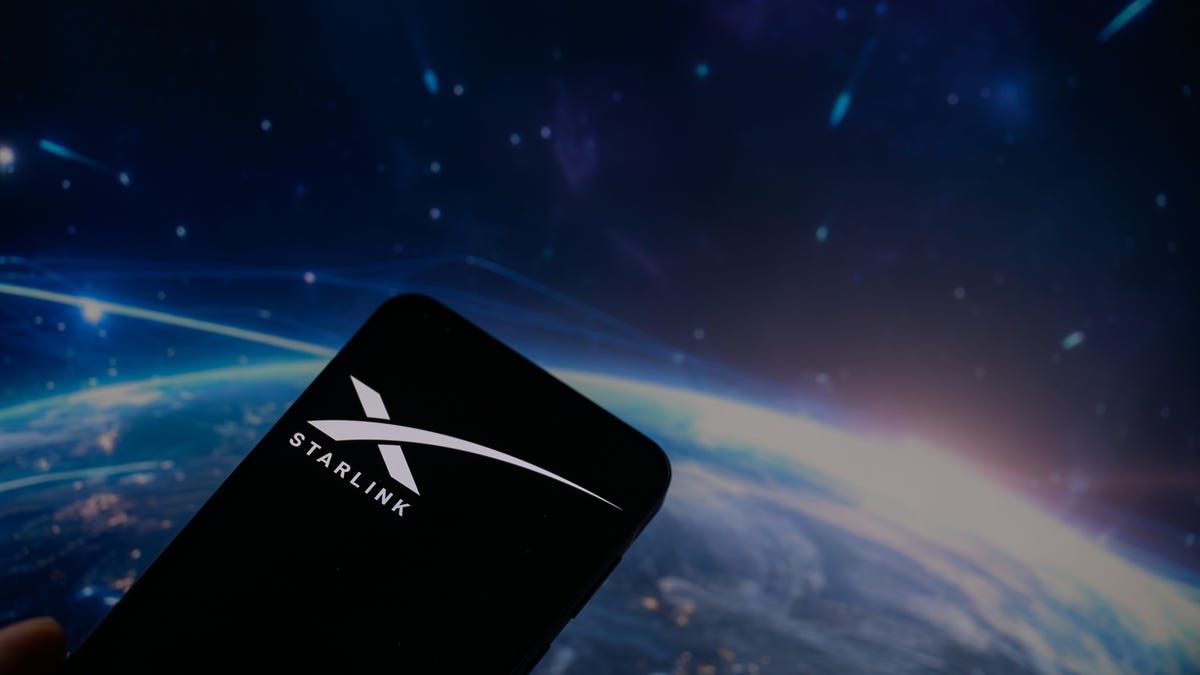Elon Musk’s SpaceX has acquired $17 billion worth of EchoStar’s wireless spectrum, the two companies announced on Monday. The coveted chunk of spectrum, which is used to transmit cellular data through the air, exists in the 1.9 and lower 2GHz spectrum bands. The news comes six weeks after SpaceX launched its satellite texting partnership T-Mobile, called T-Satellite.
SpaceX’s Starlink internet service is now poised to dramatically increase its direct-to-cell coverage, which allows users to text, call or use apps in remote areas outside the reach of cellular towers.
Out of Starlink’s 8,140 satellites in orbit, 657 belong to its first generation direct-to-cell constellation. In a blog post heralding the deal, SpaceX says the deal will allow for more than 100 times the capacity it currently has.
The news is a huge boon to T-Mobile customers, who will be the main beneficiaries of Starlink’s spectrum grab in the US. AT&T and Verizon customers can also use Starlink’s satellite-to-cell texting for an extra $10 a month by using a second eSIM. You can find instructions on setting up the eSIM here.
“The most immediate beneficiary of SpaceX’s empowerment is its primary US partner, T-Mobile. The combination of T-Mobile’s extensive terrestrial 5G network and Starlink’s enhanced D2C [direct-to-cell] capabilities creates a hybrid network with a profound competitive advantage,” writes Roger Entner, a telecom analyst and founder of research firm Recon Analytics.
Ironically, the spectrum acquisition was ignited by a SpaceX complaint to the Federal Communications Commission in April, in which the company alleged that EchoStar “barely uses” the valuable spectrum. Less than a month later, FCC Chair Brendan Carr opened an investigation into how it was using its spectrum licenses.
Watch this: Hands-On with T-Mobile’s T-Satellite Service
EchoStar, which owns DISH, Boost Mobile and Hughesnet internet, had once hoped to become the nation’s fourth wireless carrier, along with AT&T, T-Mobile and Verizon. As part of the deal, Boost Mobile customers will also have access to Starlink’s direct-to-cell network.
“In connection with the transaction, SpaceX and EchoStar will enter into a long-term commercial agreement, which will enable EchoStar’s Boost Mobile subscribers… to access SpaceX’s next generation Starlink Direct to Cell service,” EchoStar said in a statement.
The FCC investigation into EchoStar is now expected to be resolved after the company sold $23 billion of its spectrum to AT&T in a separate deal two weeks ago.
Starlink’s spectrum acquisition still needs to be approved in a complex regulatory environment. But if it does, it could spell the end of wireless dead zones as we know them.
Don’t miss any of our unbiased tech content and lab-based reviews. Add CNET as a preferred Google source.
Read the full article here


